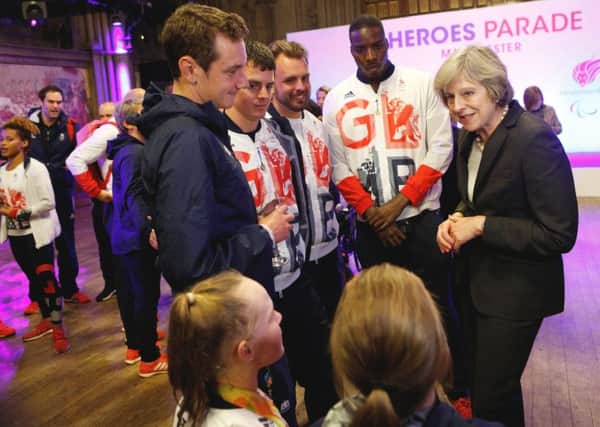Jayne Dowle: Look close to home to find lasting role models for life


I understand what she means. I’ve always considered the notion of “a role model” a difficult one. Where do we find these elusive individuals? What difference can they really make to our lives? Do they have to be famous or well-known? I’ve heard grown women answer “Madonna” and wonder what planet they must inhabit if an over-inflated pop-star is the best they can aim for.
I am all for raising aspirations, but I’m always suspicious of individuals exalted as role models. Too many – especially sporting heroes – turn out to have feet of clay when their involvement in a doping scandal or scam is revealed.
Advertisement
Hide AdAdvertisement
Hide AdIt’s also wrong to elbow your way into the role model club. Sir Alan Sugar, for instance, is often held as the epitome of achievement and business acumen, yet I can’t think why any budding modern entrepreneur would really want to follow in his abrasive footsteps.
Influential role models creep up on you when you least expect them, like Yorkshire’s very own Brownlee brothers when the sportsmanship and example of the Leeds triathletes, Alistair and Jonny, was lauded by Mrs May during her first party conference speech as Tory leader. And in my experience, you don’t recognise someone as such until you have had time to reflect upon what they bestowed to you.
Top of my list would be my grandmother for her indefatigable determination to escape the poverty of her upbringing, her rebellious nature and her sense of humour in the face of adversity. She taught me that anything was possible if you put your mind to it.
I’d also cite the headmistress of my sixth-form college, Miss Kate Taylor. Until she marched into my life waving a copy of Iris Murdoch’s The Bell, demanding that I sit the Oxford entrance exam, I’d never met a properly intellectual woman. She inspired me to gain knowledge and gave me freedom of thought.
Advertisement
Hide AdAdvertisement
Hide AdAnd I’d add my mother because she taught me how to look at a room and imagine what it could be like when transformed by colour and texture. As a child, I watched her wallpapering and sewing and arranging cushions in our little terraced house and sucked it all in by osmosis. She gave me the gift of turning a home into a sanctuary from the world.
I’ve been lucky, haven’t I? Other youngsters growing up in ordinary working class families today are not so fortunate. Too many face leaden horizons with no light from anyone to lead the way.
To its credit, David Cameron’s government did attempt to find a solution. It brought in the Troubled Families programme in attempt to lift those with no hope or inspiration out of the mire. And now this programme has been revealed as the failure which many suspected it was always going to be, wasting a frightening amount of public money along the way.
Independent analysis, carried out by the National Institute of Economic and Social Research, has found that the scheme has failed to have “any significant or systematic impact”. At a total cost of £900m to the public purse? There has to be a better way to improve the life chances of those who need help to see further than the end of the street.
Advertisement
Hide AdAdvertisement
Hide AdOne of the main criticisms of the scheme was that its criteria was flawed. What counts as troubled? A parent out of work? A child with a physical disability? A teenager experimenting with soft drugs? It could be any or all of these, or none at all.
It’s not possible to bolt-on a one-size-fits-all nationwide solution, and this is where the scheme fell down. Its failure also proves that Government intervention, however well-meaning, is not always appropriate or appreciated.
It would be fallacious to suggest that trotting out a string of role models would solve all the issues that these so-called “troubled families” face. As previously pointed out, influential figures cannot be imposed on the individual. However, I would suggest that any future initiatives look closer to home for an alternative.
In every town, village or community, there are people who make an impact on the lives of others every day. Their contribution is likely to go unrewarded but the efforts they make to keep a community centre running, a church hall open or a public garden well-tended go towards making the world a better place. They might work in a school, or at a doctor’s surgery, in a shop or a post office. Or they could be the matriarch of a large and unruly family, the kind of woman who will always find room at her kitchen table.
Advertisement
Hide AdAdvertisement
Hide AdI’d like to see much more emphasis and recognition given to these people. Not through public praise or high-profile awards, but acknowledging them as building blocks to help create communities based on respect. In the Prime Minister’s own words, these are the kind of people who get things done.
We need them now, more than ever.